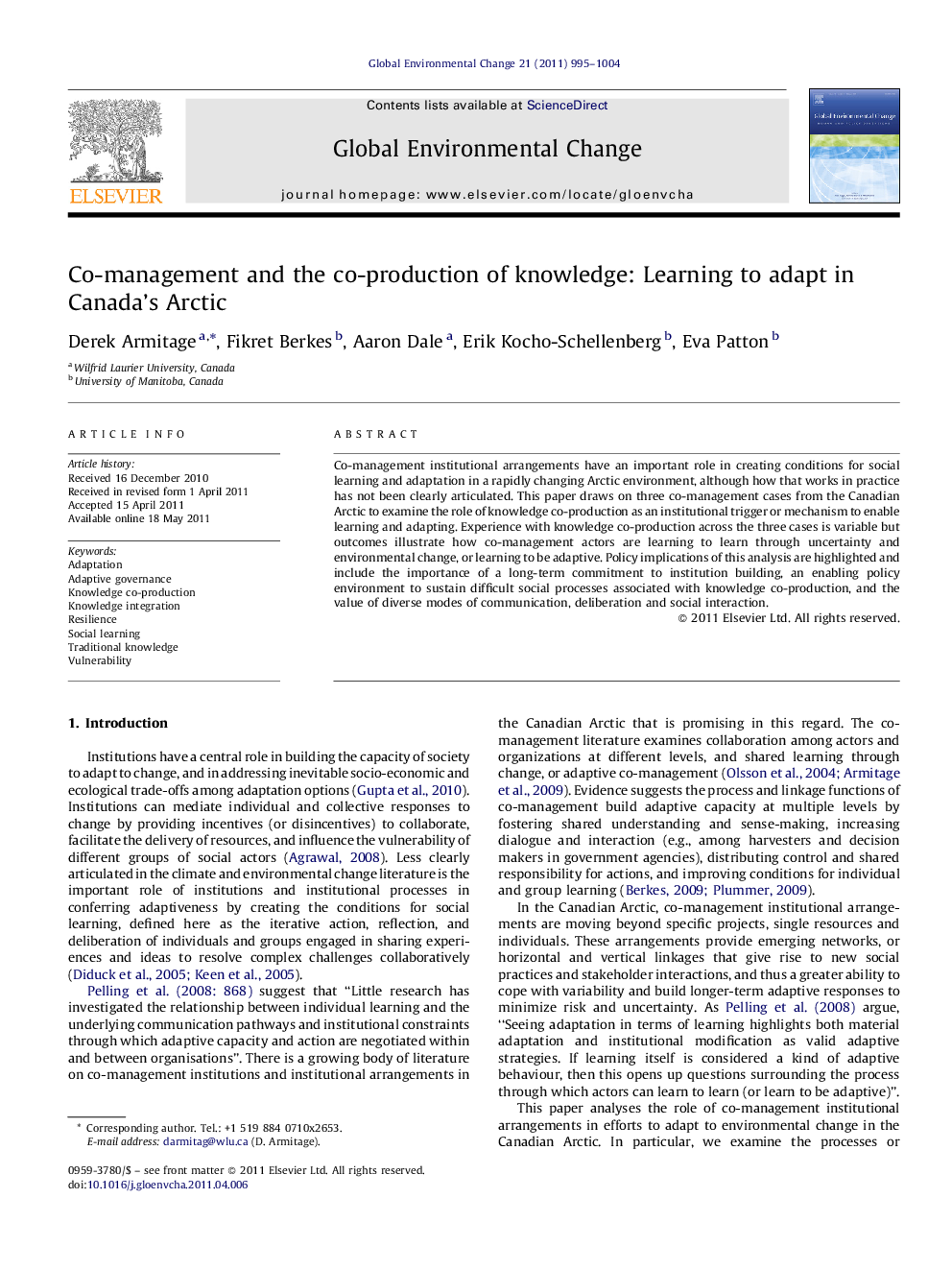| Article ID | Journal | Published Year | Pages | File Type |
|---|---|---|---|---|
| 1054741 | Global Environmental Change | 2011 | 10 Pages |
Co-management institutional arrangements have an important role in creating conditions for social learning and adaptation in a rapidly changing Arctic environment, although how that works in practice has not been clearly articulated. This paper draws on three co-management cases from the Canadian Arctic to examine the role of knowledge co-production as an institutional trigger or mechanism to enable learning and adapting. Experience with knowledge co-production across the three cases is variable but outcomes illustrate how co-management actors are learning to learn through uncertainty and environmental change, or learning to be adaptive. Policy implications of this analysis are highlighted and include the importance of a long-term commitment to institution building, an enabling policy environment to sustain difficult social processes associated with knowledge co-production, and the value of diverse modes of communication, deliberation and social interaction.
► Co-management institutional arrangements in the Canadian Arctic bring together local and traditional knowledge with scientific knowledge. ► Knowledge co-production is the institutional trigger or mechanism to enable learning and adaptation to environmental change. ► Knowledge co-production within co-management is leading to positive social and ecological outcomes but building these processes takes time. ► Crises play a role in catalyzing knowledge co-production and instigating learning to deal with change. ► Enabling policy environments and commitment from higher order institutions is crucial to support knowledge co-production for learning and adaptation.
